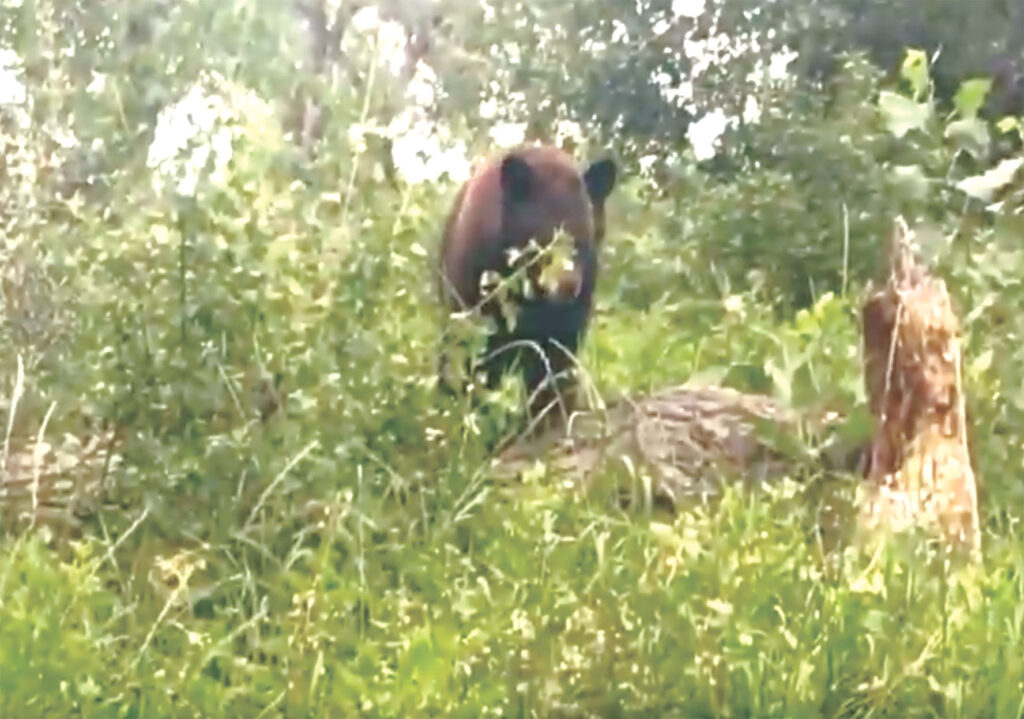
This still shot taken from the video Dustin Ogdin took on July 23 clearly shows a black bear on Norm’s Island just south of Billings.
Recently Yellowstone County residents have been seeing an increased variety of local wildlife, including black bears and mountain lions, wandering through neighborhoods and parks.
July 23 being the most recent example when local dog walker, Dustin Ogdin, encounter a black bear while exploring Norm Schoenthal Island. In these outlying areas of Billings, black bears have been tipping over garbage cans, approaching doorways and even attacking some small livestock.
The presence of black bears, mountain lions and other wildlife should come as no surprise. After all Billings is set amidst some of the best wildlife habitat in the state, along the Yellowstone River riparian corridor, between the rimrocks, steppes north of town, wooded hills, berry-rich creeks and Pryor Mountains to the south.
But wildlife and people often do not mix well, particularly when the wildlife can become aggressive in the search for food. This is where people can help keep themselves safe and the animals out of trouble by minimizing opportunities to seek food in or around homes, businesses and vehicles.
Exposed, open garbage cans and litter can attract wildlife. In more rural settings, compost piles, beehives and livestock food can also attract hungry wildlife.
The Montana Fish Wildlife and Parks recommends residents store all garbage, barbecue grills, pet food, horse pellets and livestock feed in a locked building and clean up apples, berries and other potential food sources from their yard. Bear-proofing also includes thoroughly cleaning decks and patios around barbecue areas to remove odors from previous cooking. For larger attractants, such as compost piles, electric fencing provides a reliable deterrent.
If wild animals do not find food in one location, they will look elsewhere. Animals will not stay where they find only clean, bear-proofed homes, businesses and vehicles.
Berries and other natural foods are in ample supply this year, so bears will look elsewhere if they do not find attractants near homes.

